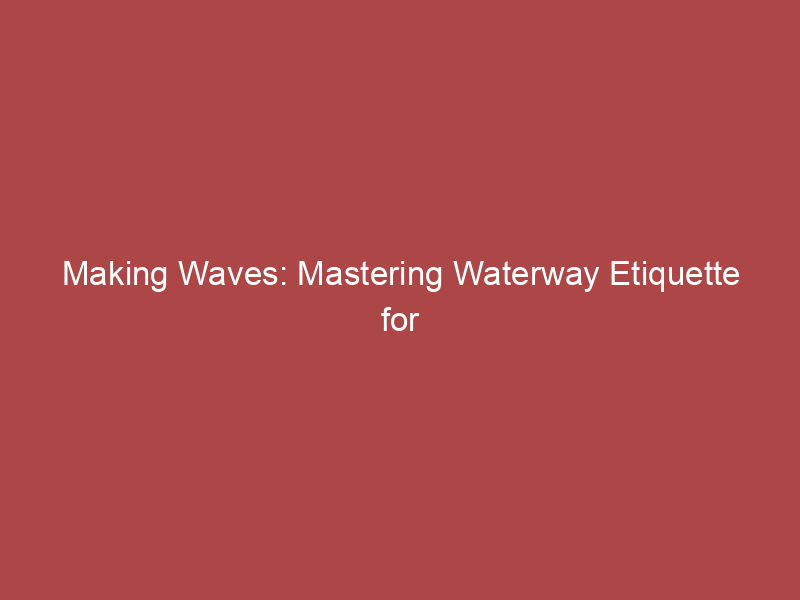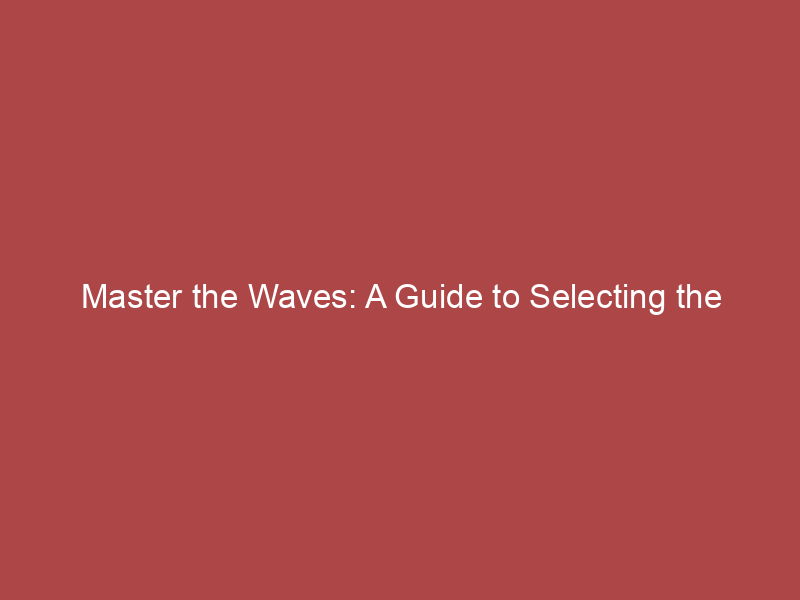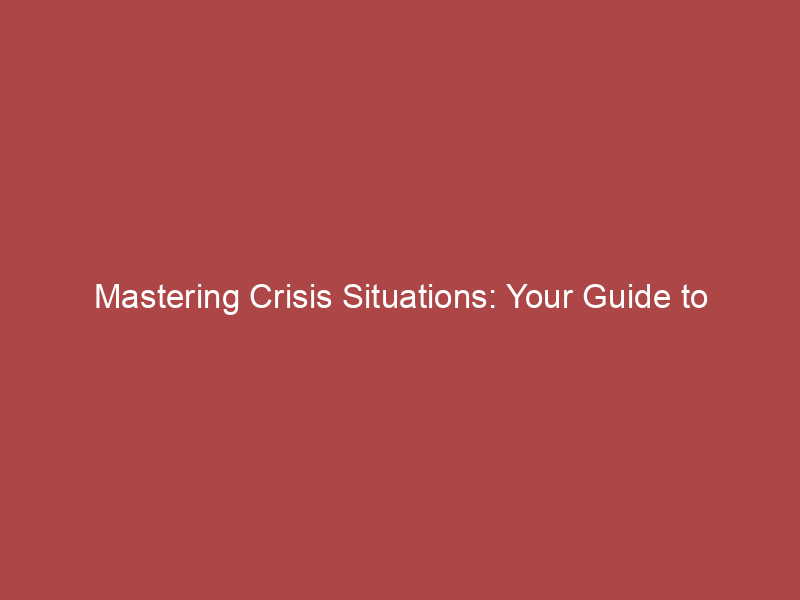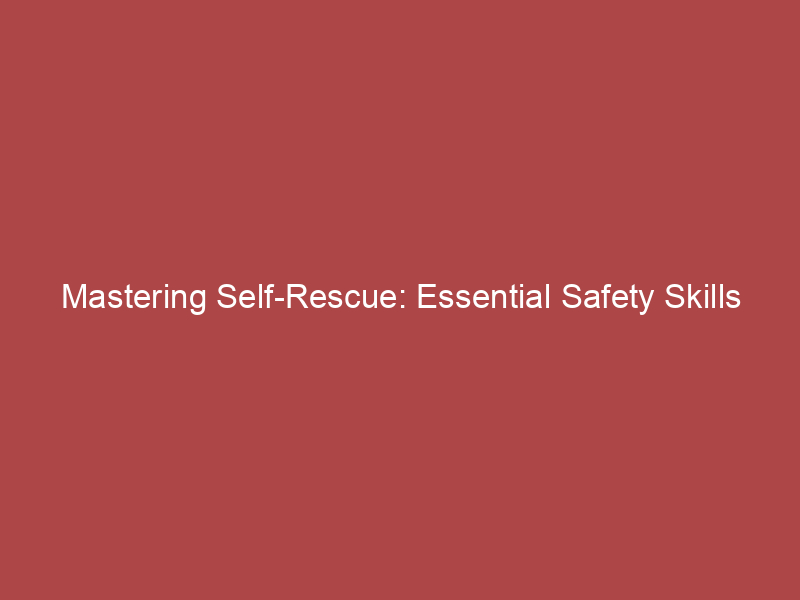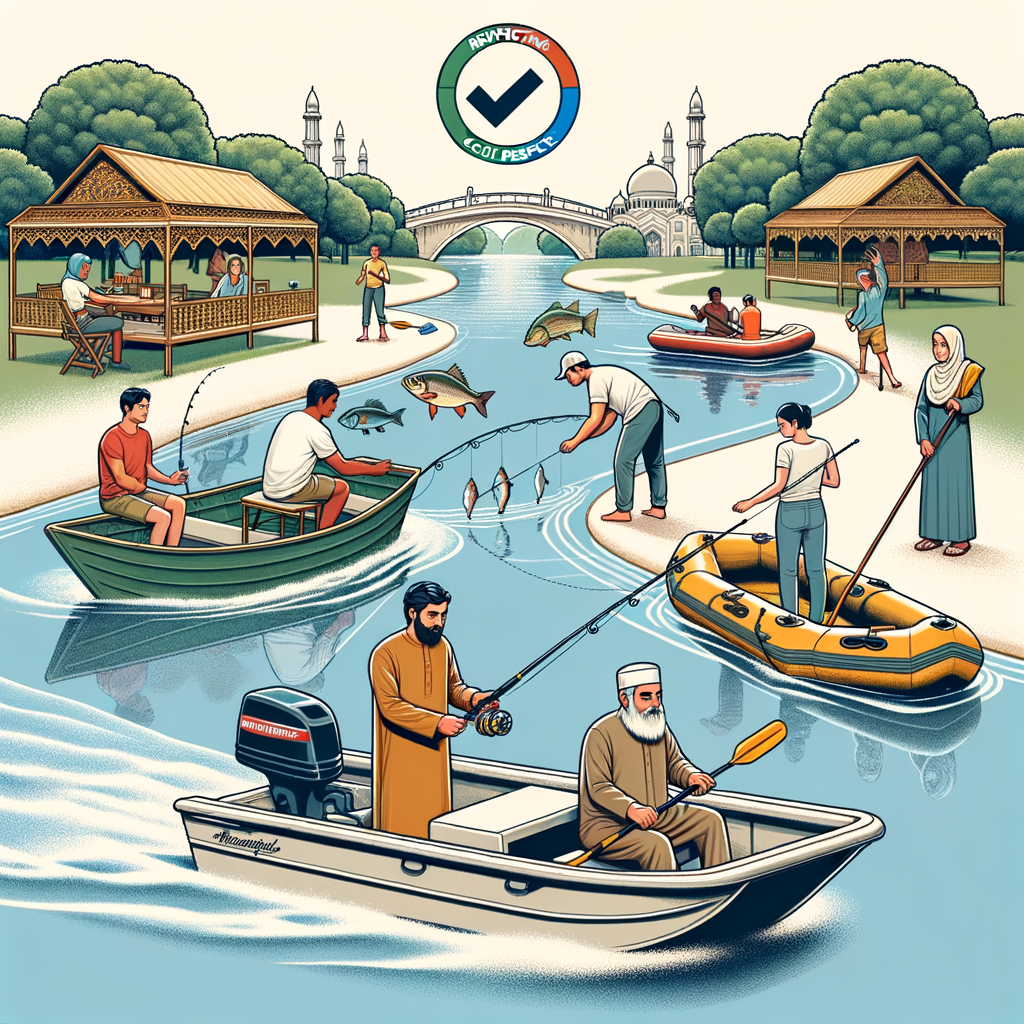
Introduction to Waterway Etiquette
When it comes to enjoying our beautiful waterways, whether it’s a peaceful river, a bustling harbor, or a serene lake, it’s essential to understand and practice proper waterway etiquette. This ensures a safe and enjoyable experience for everyone.
-
- Importance of Respecting Others on the Waterways
Respect is the cornerstone of waterway etiquette. It’s not just about being polite; it’s about ensuring safety and preserving the environment. When we respect others on the water, we help create a peaceful and enjoyable atmosphere for everyone. This includes being mindful of noise levels, maintaining a safe distance from other vessels, and being considerate of wildlife.
-
- Overview of Boating and Fishing Etiquette
Boating and fishing etiquette are specific sets of rules designed to promote safety, respect, and fun on the water. These rules cover a range of topics, from right-of-way protocols to catch-and-release practices. By adhering to these guidelines, we can ensure that our waterways remain a safe and enjoyable place for all.
Understanding and practicing waterway etiquette is an essential part of being a responsible boater or angler. It’s not just about knowing the rules; it’s about respecting others and the environment. In the following sections, we’ll delve deeper into the specifics of boating and fishing etiquette, providing practical tips and examples to help you master these important skills.
Boating Etiquette
Boating etiquette is an essential part of a safe and enjoyable experience on the water. It involves understanding and adhering to the rules of the waterways, as well as showing respect to other boaters. Let’s delve into the specifics.
Understanding Boating Rules
Understanding boating rules is the first step towards good boating etiquette. Here are some of the most important rules you should know:
-
- Right of Way Rules
Just like on the road, there are right of way rules on the water. These rules dictate who has the right to proceed first when two boats meet. For instance, a boat that is overtaking another should always give way to the boat being overtaken.
-
- Speed Limit Regulations
Speed limits are in place to ensure the safety of all boaters. These limits may vary depending on the area, so it’s important to be aware of the local regulations. Exceeding the speed limit can lead to accidents and is considered poor boating etiquette.
-
- Rules about Noise and Disturbances
Boaters are expected to minimize noise and disturbances, especially in residential areas and during quiet hours. This includes reducing the volume of music and avoiding unnecessary engine noise. Remember, the goal is to enjoy the water without disturbing others.
By understanding and following these rules, you can ensure a safe and enjoyable boating experience for everyone on the water.
Respect on Waterways: Etiquette for Boaters
As boaters, it’s essential to respect our waterways and the other people who use them. This includes respecting fishing zones, maintaining a safe distance from other boats, and properly disposing of waste. Let’s delve into these points in more detail.
- Respecting Fishing Zones
It’s important to respect fishing zones when boating. These areas are designated for fishing activities, and disturbing them can negatively impact the fishing experience for others. It’s not just about being considerate; it’s also about preserving the natural habitat of marine life. Remember, a good boater respects the rights and space of others.
- Maintaining a Safe Distance from Other Boats
Another crucial aspect of boating etiquette is maintaining a safe distance from other boats. This is not only for your safety but also for the safety of others on the water. According to the U.S. Coast Guard, the recommended safe distance is at least 100 feet. This allows enough time for boats to react and adjust their course if necessary. Remember, safety should always be your top priority when boating.
- Properly Disposing of Waste
Lastly, properly disposing of waste is a critical part of boating etiquette. Littering in our waterways is not only illegal, but it also harms the environment and marine life. Always make sure to carry a trash bag on your boat and dispose of your waste properly once you’re back on land. As the saying goes, “Leave only footprints, take only memories.”
Respecting our waterways and practicing good boating etiquette is not only about following rules. It’s about being a responsible and considerate member of the boating community. So the next time you’re out on the water, remember these etiquette tips and help make our waterways a better place for everyone.
Fishing Etiquette
As a fisherman, it’s important to understand and respect the rules and etiquette of fishing. This not only ensures a pleasant experience for everyone but also helps preserve the environment and wildlife. Let’s delve into some of the key aspects of fishing etiquette.
Respecting Fishermen: Understanding Fishing Rules
When it comes to fishing, there are certain rules that every angler should respect. These rules are not just about catching fish, but also about respecting other fishermen, the environment, and the wildlife. Here are some of the most important ones:
-
- Respecting fishing boundaries
Every fishing area has its own set of rules and boundaries. These boundaries are there to protect the fish population and ensure a fair experience for all fishermen. It’s important to respect these boundaries and not to fish in restricted areas. This shows respect for other fishermen and the environment.
-
- Proper catch and release practices
Catch and release is a practice that helps preserve fish populations. It involves catching a fish and then releasing it back into the water in a way that causes minimal harm. To do this properly, you should handle the fish with wet hands or a wet cloth to minimize damage to their scales and skin. Also, try to remove the hook as quickly and gently as possible.
-
- Respecting the environment and wildlife
When fishing, it’s important to respect the environment and wildlife. This means not littering, not disturbing the natural habitats of animals, and not catching more fish than you need. It’s also important to use fishing gear that is environmentally friendly and doesn’t harm the wildlife.
By following these rules, you can ensure a pleasant and respectful fishing experience for everyone. Remember, fishing is not just about catching fish, but also about enjoying nature and respecting the environment and wildlife.
Fishermen Respect: Waterway Behavior
As a fisherman, it’s important to understand and respect the rules of the waterway. This includes understanding fishing rights, respecting other fishermen’s space, and maintaining proper communication with other fishermen and boaters. Let’s delve into these aspects in detail.
-
- Understanding Fishing Rights
Fishing rights are laws or rules that govern where, when, and how you can fish. These rights are designed to protect fish populations and ensure everyone has a fair chance to enjoy fishing. It’s crucial to know and respect these rights. For instance, some areas may be off-limits during certain times of the year to protect spawning fish. Always check local regulations before you cast your line.
-
- Respecting Other Fishermen’s Space
Respecting other fishermen’s space is another key aspect of waterway behavior. This means not crowding other fishermen or casting your line into their fishing spot. Remember, everyone is there to enjoy the peace and tranquility of fishing. Give other fishermen plenty of room to cast and retrieve their lines without interference.
-
- Proper Communication with Other Fishermen and Boaters
Good communication is vital on the water. This includes signaling your intentions to other boaters and fishermen, using the proper radio channels if necessary, and being polite and respectful in all interactions. If you’re unsure about the proper protocol, don’t hesitate to ask. Most fishermen and boaters are happy to help newcomers learn the ropes.
Respecting the waterway and the rights of other fishermen and boaters is an essential part of being a responsible and respectful fisherman. By understanding and following these guidelines, you can ensure a positive experience for everyone on the water.
Case Studies: Boating and Fishing Respect
Let’s delve into two real-life case studies that demonstrate the importance of respecting boating and fishing rules. These stories will help us understand the positive impact of following waterway etiquette and the negative consequences of neglecting it.
-
Case Study 1: Successful Implementation of Waterway Rules
In a small town named Riverdale, the local council decided to enforce strict waterway rules for boating and fishing. They provided education sessions for the community, explaining the importance of these rules for safety and environmental preservation. They also installed clear signage about the rules at all local waterways.
Within a year, Riverdale saw a significant decrease in boating accidents and damage to the local aquatic environment. The fish population, which had been declining, started to recover. The community also reported a more enjoyable and peaceful experience during their boating and fishing activities.
This case study highlights the positive effects of implementing and respecting waterway rules. It shows that with proper education and enforcement, we can create a safer and more sustainable environment for boating and fishing.
-
Case Study 2: Consequences of Not Following Etiquette
On the other hand, let’s look at a contrasting situation in Lakeville. Here, there were no strict waterway rules enforced, and the community was not educated about the importance of boating and fishing etiquette.
As a result, boating accidents increased, and the local fish population suffered. The lake’s ecosystem was disrupted due to careless fishing practices and excessive boat traffic. The community members started to complain about the noise and the decline in the quality of their boating and fishing experiences.
This case study serves as a warning about the negative consequences of neglecting waterway etiquette. It underscores the importance of respecting rules not only for our safety but also for the health of our waterways and the enjoyment of our recreational activities.
Key Takeaways: Mastering Waterway Etiquette
As we navigate through the waters, it’s essential to remember that we share this space with others. Understanding and following waterway etiquette can ensure a safe and enjoyable experience for everyone. Let’s recap the key points we’ve discussed in this article.
-
- Importance of Understanding and Following Waterway Rules
Waterway rules are not just guidelines; they are laws designed to keep everyone safe on the water. They regulate speed, noise levels, and right-of-way, among other things. Ignoring these rules can lead to accidents and penalties. A study by the U.S. Coast Guard in 2019 showed that 81% of boating accidents occurred due to the operator’s ignorance of navigation rules.
-
- Respect for Other Boaters and Fishermen
Respect is a two-way street. When we show consideration for other boaters and fishermen, we create a positive environment on the water. This includes maintaining a safe distance, not creating unnecessary wake, and respecting fishing boundaries. Remember the golden rule of boating: treat others as you would like to be treated.
-
- Consequences of Not Following Etiquette
Not following waterway etiquette can have serious consequences. It can lead to accidents, fines, and even the suspension of your boating license. In 2019, the U.S. Coast Guard reported that violations of navigation rules were the second leading contributing factor in boating accidents. So, it’s not just about being polite – it’s about safety too.
In conclusion, mastering waterway etiquette is crucial for a safe and enjoyable boating experience. It’s about understanding the rules, respecting others, and being aware of the consequences of our actions. As the famous quote goes, “A smooth sea never made a skilled sailor.” So, let’s navigate these waters with care and consideration for all.

